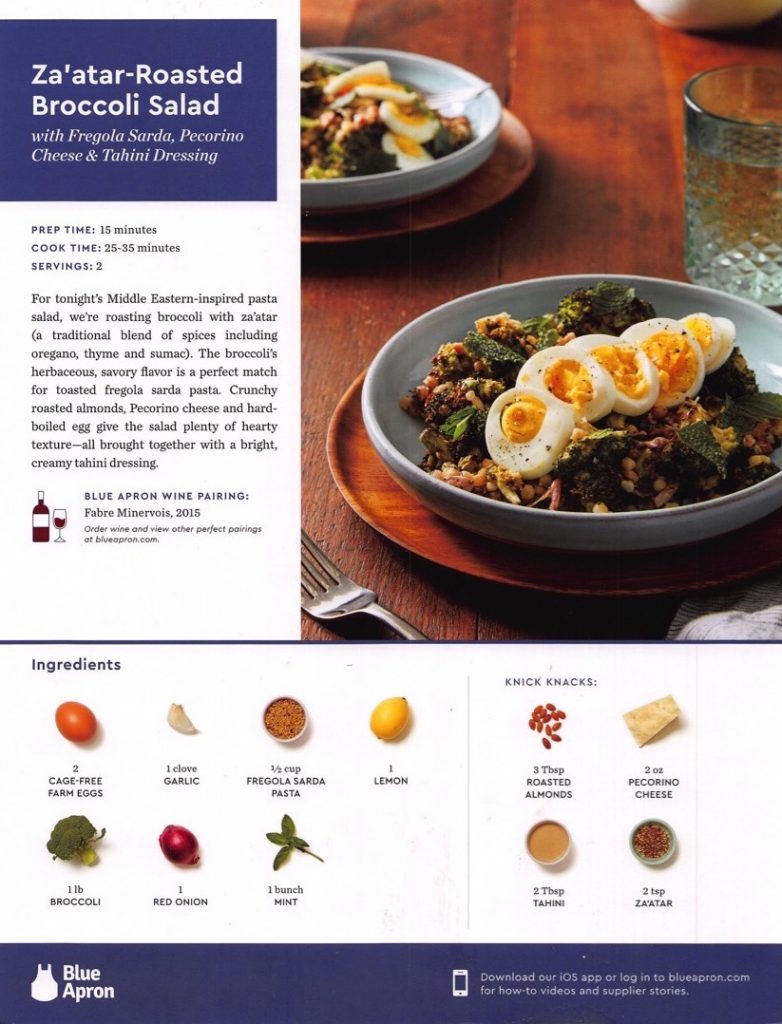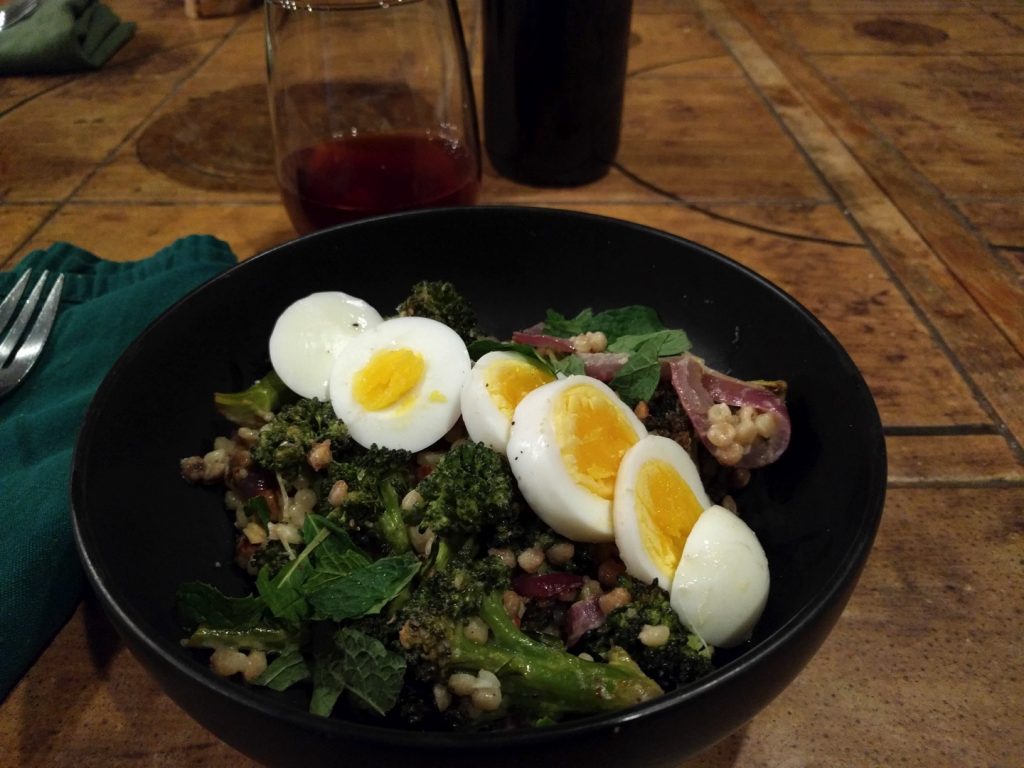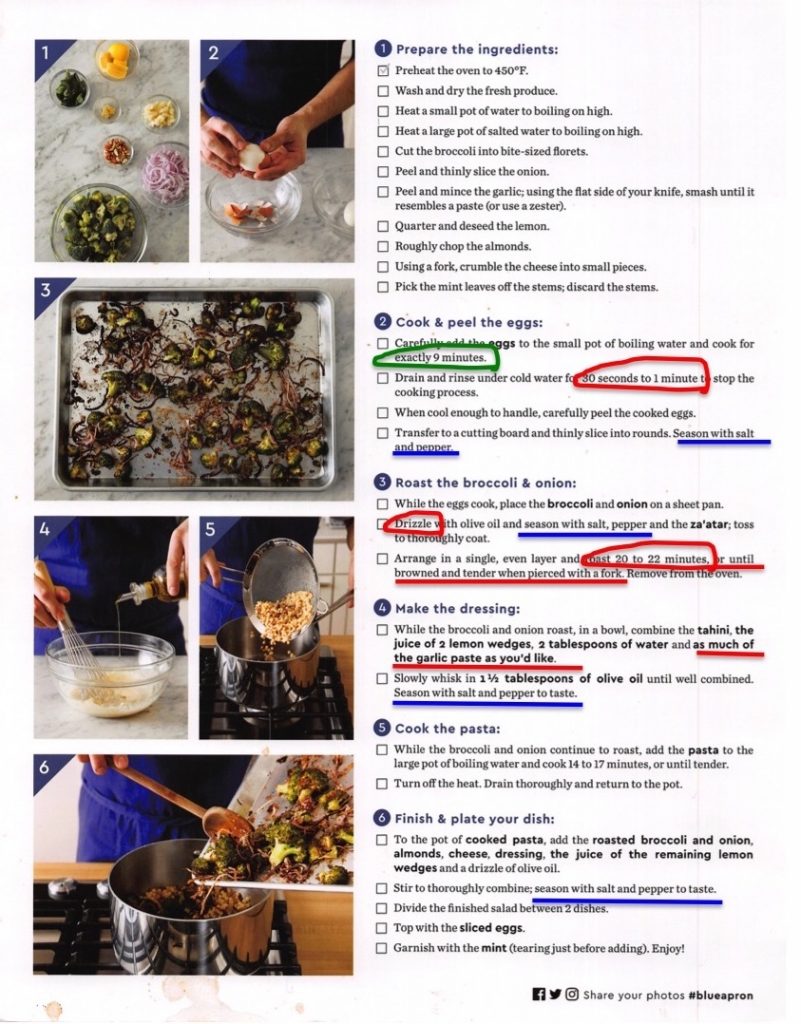Nothing ever goes exactly by the book
In Designing Object-Oriented Software, we used the design for an ATM (Automated Teller Machine) to illustrate how to design object-oriented software. We worked through a simplistic design for an ATM and produced a CRC (Class-Responsibility-Collaborator) Card design.
Several years after our book was published I received an email from an instructor at a company. Although he liked our book, he felt he was missing something important about Responsibility-Driven Design. No matter how hard he tried, his students never exactly reproduced our design! And worse yet, in his opinion, all their designs were different.
I was astonished that he expected to teach principles, practices, and design thinking and then magically his students would produce identical designs. Our minds don’t work alike, so why should we produce identical designs?
A couple of years ago I received a gift of a Blue Apron subscription. For those who are not familiar with Blue Apron, you select the meals you want for a week, then along with the recipes they ship you a box of ingredients. All you add is your own salt and olive oil, cooking utensils, stove, and voila—you make a tasty dish.
The first meal I cooked was Za’atar-Roasted Broccoli Salad. The picture of the dish on the recipe card looked like this:

And here’s a photo of the dish as I prepared it:

Not bad! But I didn’t blindly follow the recipe. I used my brain, my eyes, and my cooking sense, as well as past experiences, when making that dish.
If you look closely the recipe card below you’ll see that the instructions are not equally precise. While the eggs should be boiled for exactly 9 minutes, there’s more tolerance in the time to roast the broccoli. Just exactly how much is a drizzle? And that there are so many points during the recipe when you are asked to add salt! Over time (and following several recipes’ instructions too closely) I learned that if you added salt every time they advised you to, the meals would be too salty. Over time, Blue Apron has adjusted their recipes to not include so many salt instructions.

There is no substitute for learning from direct experience and observation. A beginning cook who expects to follow instructions exactly and get a well-made dish is bound to be frustrated.
And people who expect to follow someone else’s software design heuristics and end up with an optimal solution to their specific design problem will invariably be disappointed.
Sure, you may initially learn some design heuristics from a book or by reading code or from someone who is more senior or stack overflow or wherever. But never expect things to go exactly “by the book.” There are many details that experts never share that you’ll have to fill in. And don’t get frustrated when experts change their minds or design approaches or disagree (they do all the time). But don’t be silent, either, if you are puzzled or curious. Ask them about their thinking. They may have encountered an edge case or an exception to some “general” heuristic. Or there may have been more to the design problem than they had initially thought. By having that conversation you just might learn something from each other.